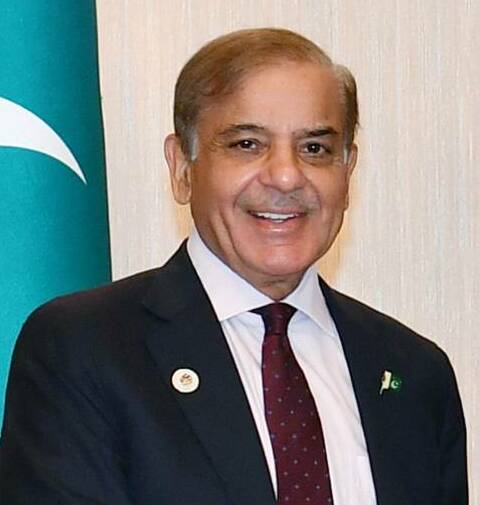
“Pakistan Seeks Peace Through Dialogue,” Says PM Shehbaz Amid Regional Tensions

Pakistani Prime Minister Shehbaz Sharif declared on Friday that while Pakistan has “won the war,” the country now seeks peace. Speaking at a ceremony in Islamabad celebrating the success of “Operation Bunyad-e-Um Marsoos,” Sharif extended a call for peaceful coexistence with India.
Tensions between India and Pakistan escalated after India blamed Pakistan for the attack in Pahalgam, Kashmir. On the night of May 6–7, India conducted airstrikes on Pakistani territory, resulting in civilian casualties. Over the following week, both countries exchanged missile strikes, pushing the situation to the brink of full-scale war. A ceasefire was eventually brokered through U.S. mediation.
At the state-organized “Youm-e-Tashakkur” (Thanksgiving Day) event held at the Pakistan Monument, top military and civilian leadership, including the three service chiefs, were present alongside the Prime Minister.
Shehbaz Sharif began his address by paying tribute to the martyrs and their families. “We have responded to the enemy and taught them a lesson, but we do not believe in aggression,” he said. “We want to build a peaceful and progressive region.”
He revealed that during a late-night meeting on May 9–10 with military leaders, it was decided that Pakistan would issue a “measured response” to India’s breach of its territorial sovereignty. “Around 2:30 AM, the Army Chief called me on a secure line and said, ‘Prime Minister, grant us permission to strike in a way they’ll never forget.’”
Following Pakistan’s retaliatory strikes, Shehbaz said, the Army Chief again contacted him, saying, “We’ve responded; now we’re receiving ceasefire proposals. What is your stance?” Shehbaz replied, “Strike when the enemy is disoriented—that’s the real blow. Accept the proposal.”
The Prime Minister also highlighted Pakistan Air Force’s technological prowess, claiming it surprised adversaries and boosted the confidence of allies. “Pakistan’s military capabilities are now being recognized from the U.S. to Japan,” he stated. “No major power can now hinder Pakistan’s progress.”
Despite the military success, Shehbaz emphasized that the conflict had not yielded real benefits. “This war brought nothing but poverty, unemployment, and further problems,” he said. “The only solution is dialogue. We must resolve all disputes, particularly Jammu and Kashmir, through peaceful negotiations.”
He concluded by saying that lasting peace in the region requires permanent solutions to key issues like Kashmir and water sharing. “Once these matters are settled, new opportunities will open up for trade, cooperation against terrorism, and regional development.”
Through his remarks, Prime Minister Shehbaz Sharif underscored Pakistan’s preference for diplomacy over confrontation and a vision for a peaceful, cooperative South Asia.
Copyright © 2025 News of truth. All rights reserved.